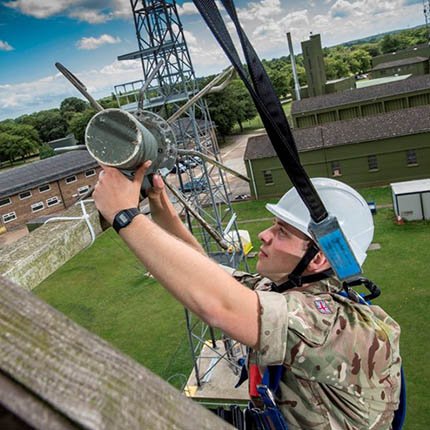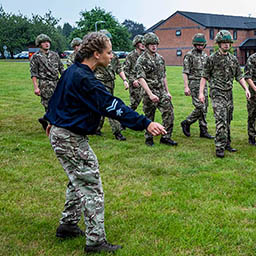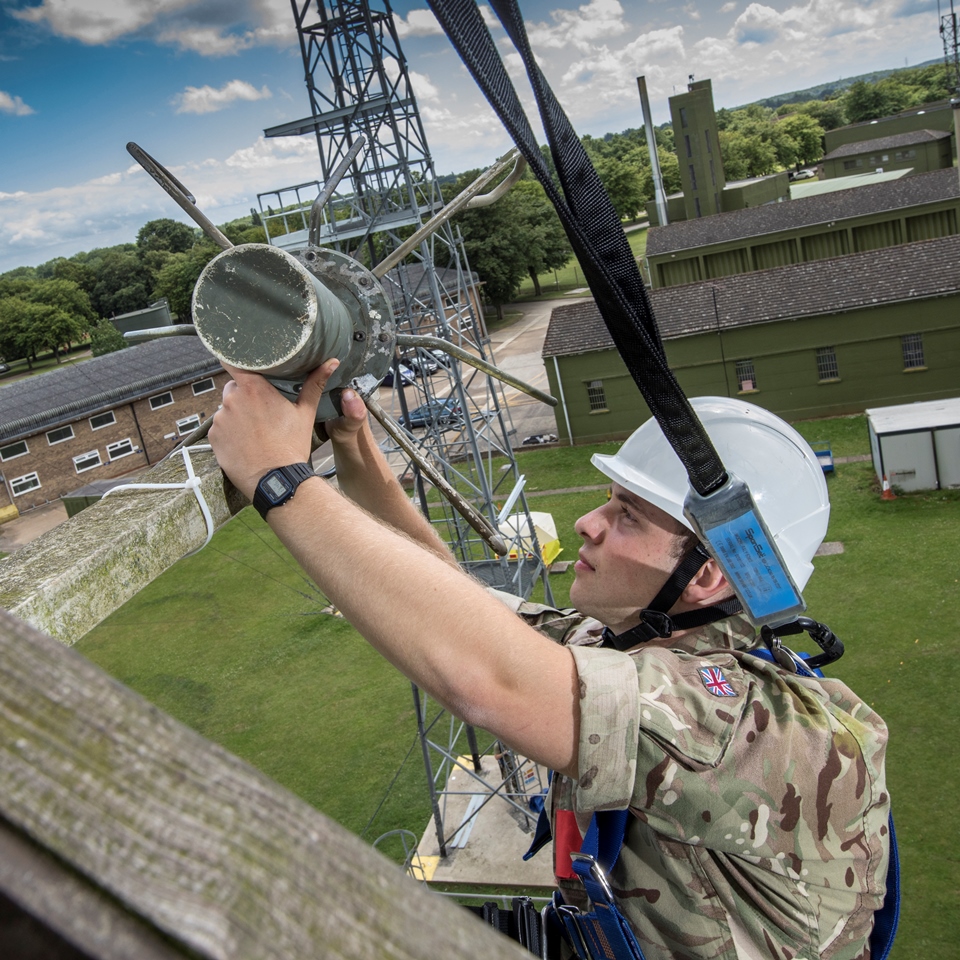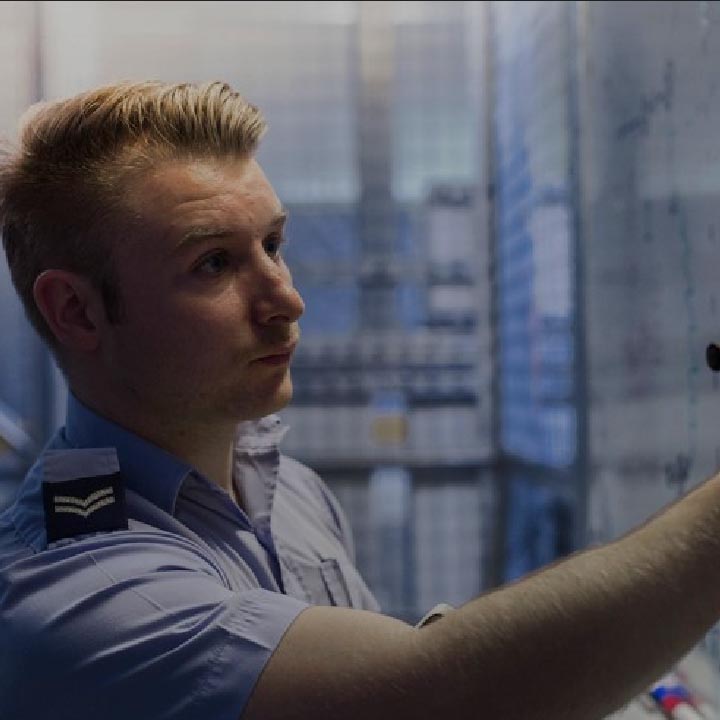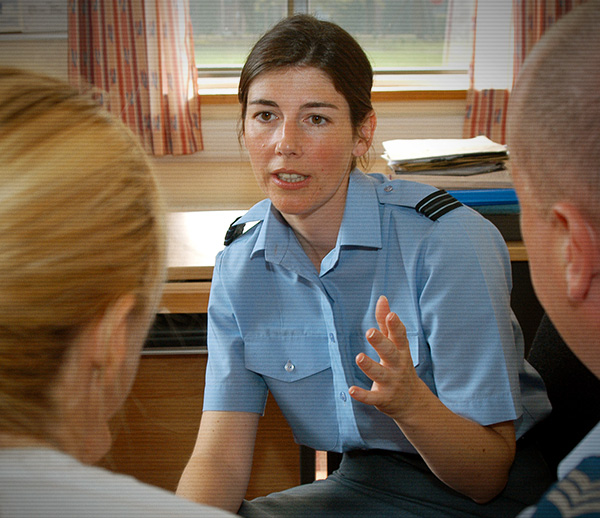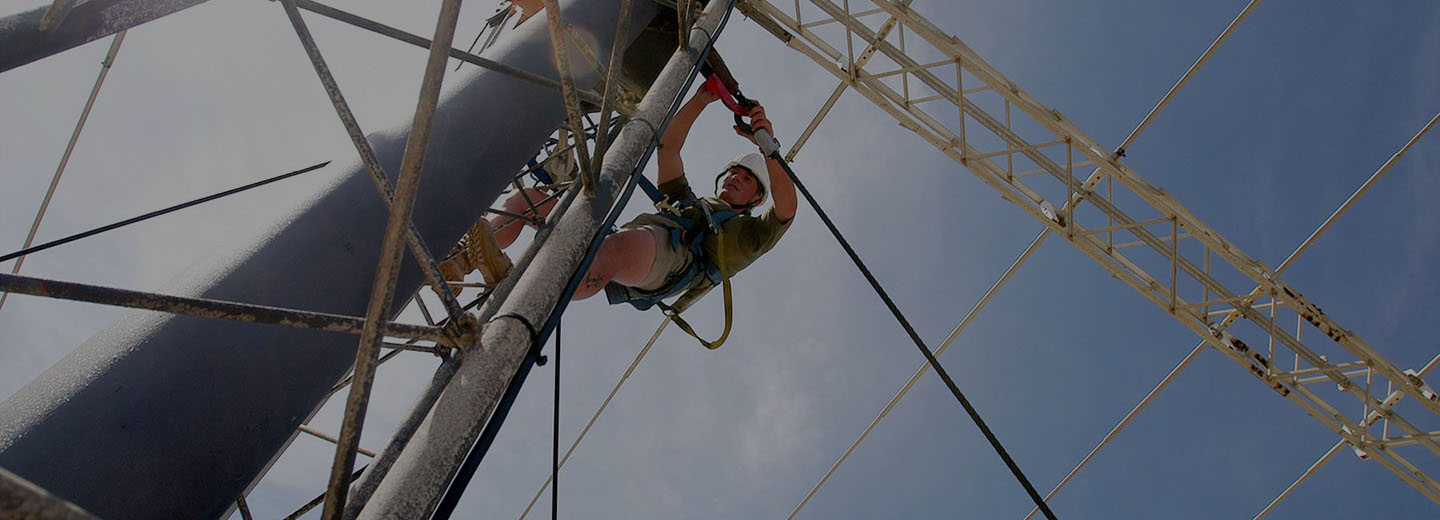
*After you have completed at least one year of service and successfully completed Professional Workplace Assessments on first posting.
As a Communications Infrastructure Technician you will provide communication for the RAF’s digital infrastructure ecosystem by installing and maintaining essential fibre optic and data communication cables, radome structures and antenna masts working at height or in secure operation rooms.
Already applied? See what the next steps are >
- Ensure that the RAF remains at the forefront of a progressive cyber engineering industry
- Repair, maintain and recover communication equipment
- Investigate and fix faults with antenna systems, fibre optic and data communication cables
- Assemble and install communication infrastructure such as antenna masts, fibre optic cables and radome installation structures
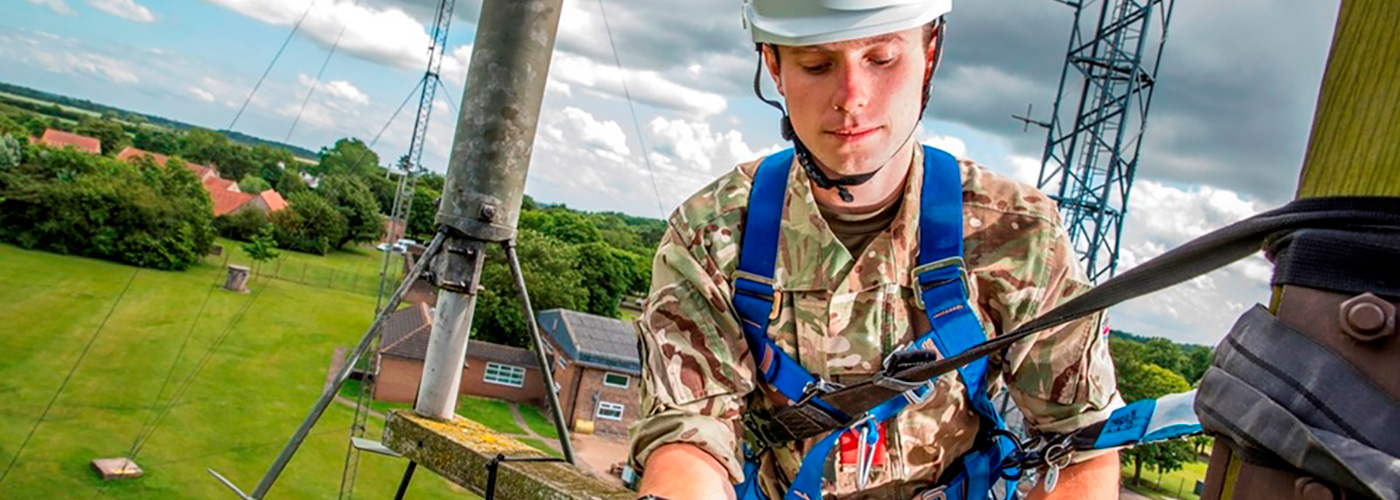

- As a minimum, you need GCSE's at grade C/4 or Scottish National 5 at grade C in English Language and Mathematics.
- You can see what the RAF accepts in lieu of GCSEs & A Levels here.
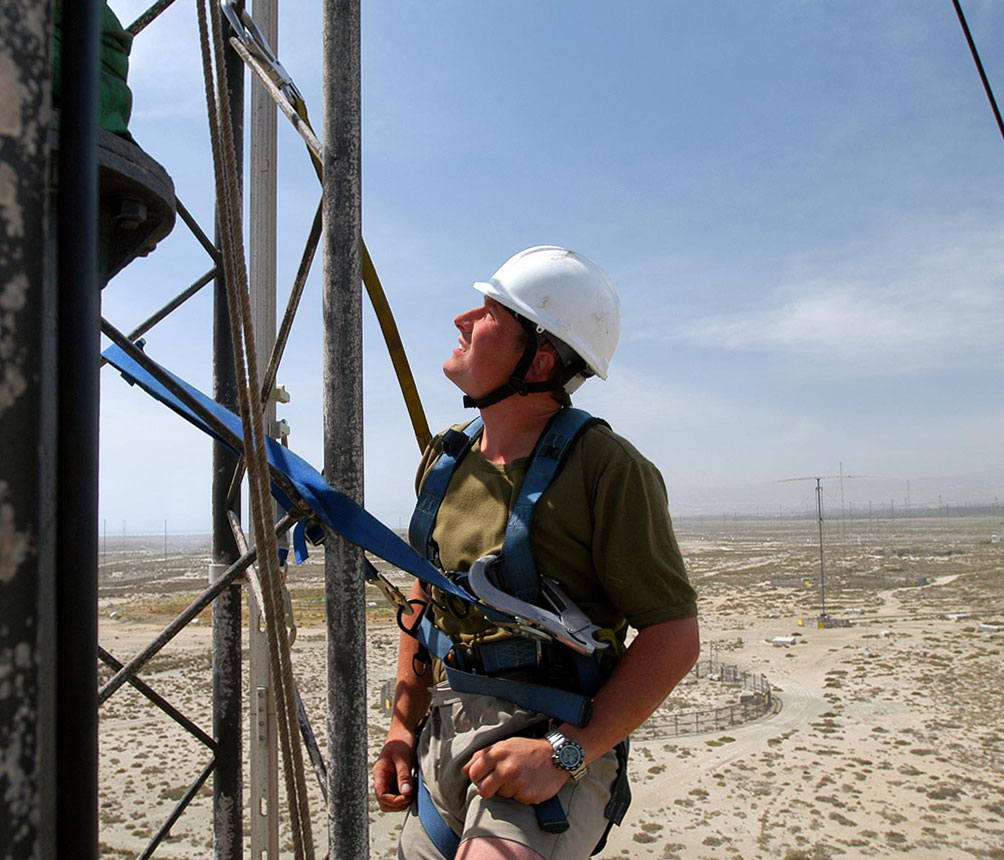
- Be aged 16 – 47 years old (Must attest before 48th birthday)
- Must complete a specialist interview which includes a climbing aptitude test at RAF Digby, Lincolnshire
- You must be a citizen of the United Kingdom or holder of dual UK/other nationality
- Commit to minimum 3 years post Phase Two Training
- Pass the Defence Aptitude Assessment
- Pass a Fitness test - Details below
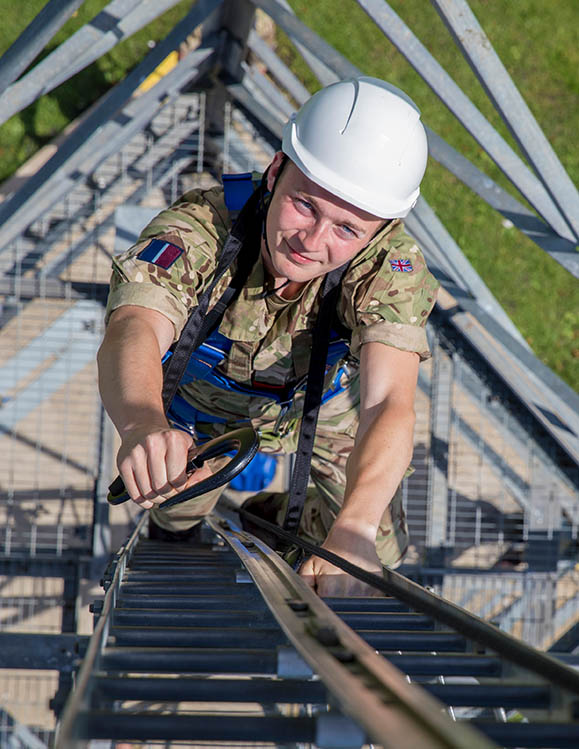
Thanks to subsidised food, travel and accommodation and free gym you get more money in your pocket.

Wayne (Communications Infrastructure Technician)
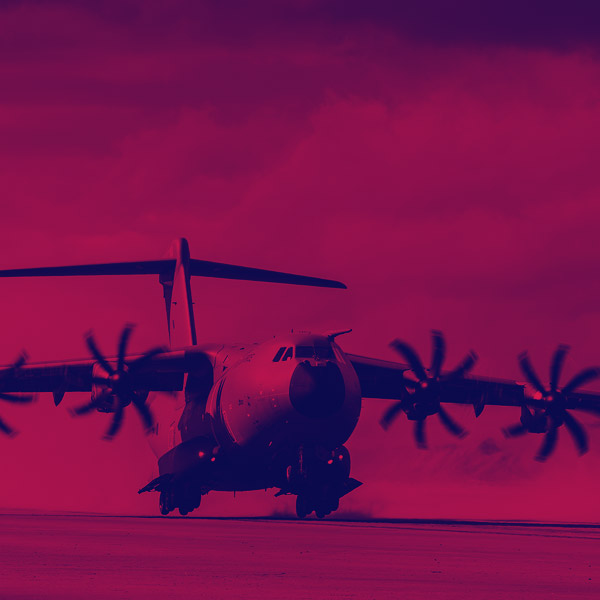
You must be aged 16 – 47 years old (Must attest before 48th birthday)
Applicants must also read all of the sections below and make sure they meet all entry requirements before submitting an application.

NATIONALITY
You must be a citizen of the United Kingdom or holder of dual UK/other nationality.
RESIDENCY
Whether or not you were born in the United Kingdom, you should have resided there for the 5 years immediately preceding your application, but candidates with a minimum of 3 years may be considered. If you have resided abroad for a period due to work or study, you may still be eligible on a case by case basis.

You must be physically fit to complete both initial and specialist training, and to do your role effectively.
As part of the application process you will need to do the Pre-Joining Fitness Test (PJFT), which takes place at a fitness centre local to you. This consists of the following:
- 2.4km (1.5m) run on a treadmill (set to zero incline)
- Achieve the required number of press-ups - within 60 seconds
- Achieve the required number of sit-ups - within 60 seconds
How fit you need to be to pass this test can vary depending on role, age and gender. The requirements are listed on the charts below (Male and Female).
| MEN | |||
| AGE | 2.4 Km Run | Press-ups | Sit-ups |
| (Mins) | (No.) | (No.) | |
| 15-16 | 12.39 | 20 | 35 |
| 17-29 | 12.11 | 20 | 35 |
| 30-34 | 12.36 | 19 | 32 |
| 35-39 | 13.02 | 18 | 29 |
| 40-44 | 13.30 | 17 | 26 |
| 45-49 | 14.00 | 16 | 23 |
| 50-54 | 14.34 | 15 | 20 |
| WOMEN | |||
| AGE | 2.4 Km Run | Press-ups | Sit-ups |
| (Mins) | (No.) | (No.) | |
| 15-16 | 14.59 | 10 | 32 |
| 17-29 | 14.30 | 10 | 32 |
| 30-34 | 14.55 | 9 | 29 |
| 35-39 | 15.21 | 8 | 26 |
| 40-44 | 15.58 | 7 | 23 |
| 45-49 | 16.32 | 6 | 20 |
| 50-54 | 17.06 | 5 | 17 |
See here for more information about the test and a training plan

Candidates joining the RAF must be medically fully fit, both physically and psychologically, to meet the challenges of military service, during which they will be expected to deploy, potentially at short notice, to locations world-wide that are remote from established medical care.
Certain medical conditions could preclude entry to the RAF. Further details can be found in this document.
Before your application, please note that Body Mass Index Requirements are as follows:
| Age | Male and female minimum | Male and female maximum | Male maximum with additional assessment | Female maximum with additional assessment |
| 18 + | 18 | 30 | 32 | 32 |
| 16 to < 18 | 17 | 27 | 27 | 27 |
Eyesight requirements vary for different roles. A requirement to wear glasses or contact lenses may be allowed for aircrew.
If you are unsure about any health criteria, please continue your application and your eligibility will be assessed at the medical examination stage.
During your application, the Medical Risk Assessment that all candidates undergo is there to make sure that you are healthy enough for the intense training required by the RAF. Your application will be rejected if you fail to meet the minimum acceptable medical standard for entry. Your medical history is confidential and is not disclosed to those not authorised to hold this information.

YOU MUST:
- Declare any previous spent and unspent convictions
- Check if you qualify under the Rehabilitation of Offenders Act 1974 through this summary
- Have a basic background check to get Security Check level clearance

YOU CAN'T APPLY FOR THE RAF IF YOU:
- Have been or are a member of a group that stirs up racial hatred and violence
- Are waiting to appear in court, or have unspent convictions. You may also have to declare spent convictions for certain roles
- Misuse drugs, solvents and anabolic steroids. But each case is considered upon its own merits
- Have tattoos, brands or bead implants that are obscene or offensive.
Any permanent or temporary tattoos, whether ordinarily visible or not, must not be obscene or offensive (eg, racist, anti-religion or belief, crude, overtly sexist, homophobic, drug related or of an extreme political nature). Tattoos may be worn on the side and back of the neck but tattoos on the back of the neck must not extend above the natural hairline (scalp tattoos are not permitted). In addition, tattoos must not be visible below the sleeve cuff while wearing uniform, although a single finger (not thumb) tattoo that could be covered by a ring may be permitted - Have body piercing which causes holes that do not close up
- Declare yourself to be an 'undischarged' bankrupt
Beard Policy: A revised facial hair policy has been agreed by the Air Force Board which will allow serving personnel to wear a smart, neatly-trimmed, full-set beard whilst maintaining high standards of appearance. The length of acceptable beards is between Grade 1 (2.5mm) and Grade 8 (25.5mm). The wearing of beards during Phase 1 and Phase 2 training is currently under consideration and details will be advised when available
If you don’t have any of the above, you might still be able to apply. For more information please contact us.
